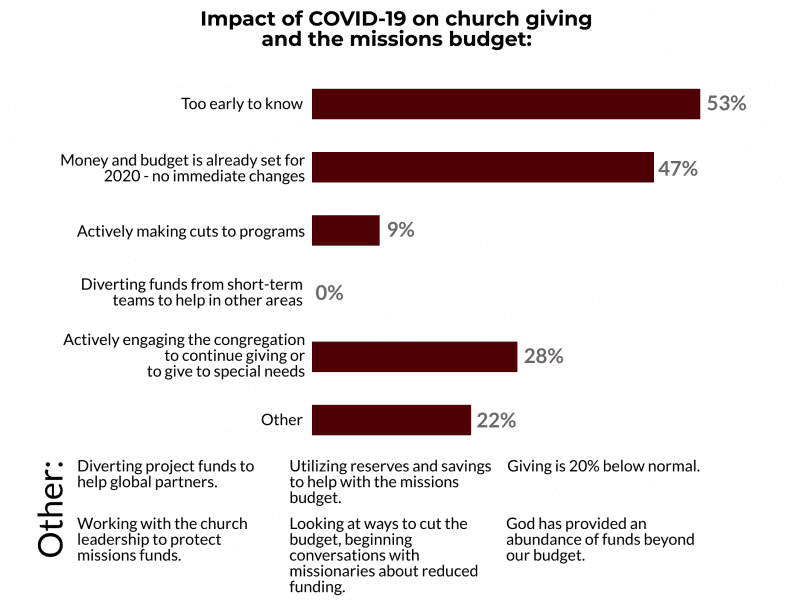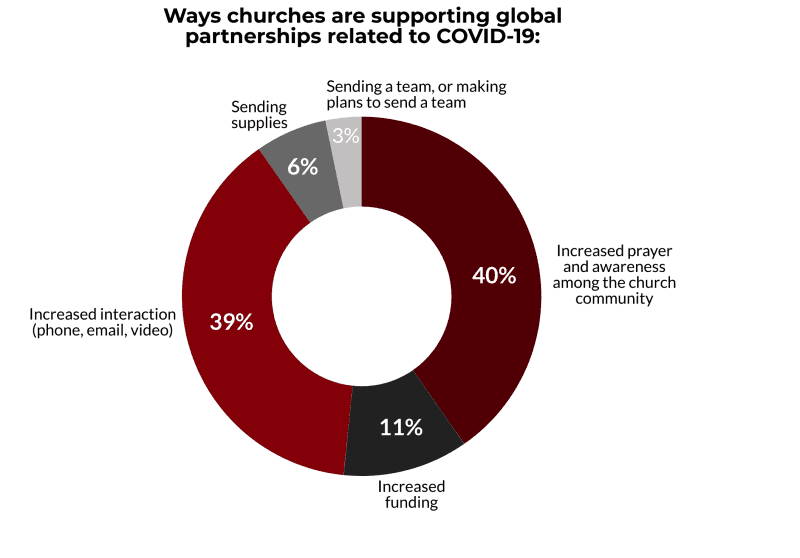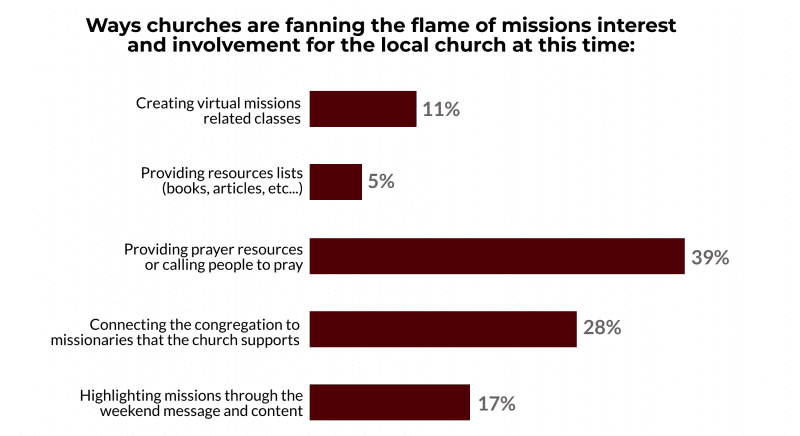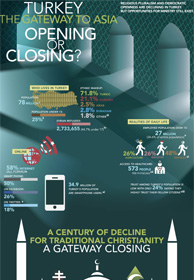COVID-19 Church Mission Leader Report


The following information was provided through a Missio Nexus initiated survey from April 8-14, 2020. Thirty-five churches of varying sizes from across North America contributed.
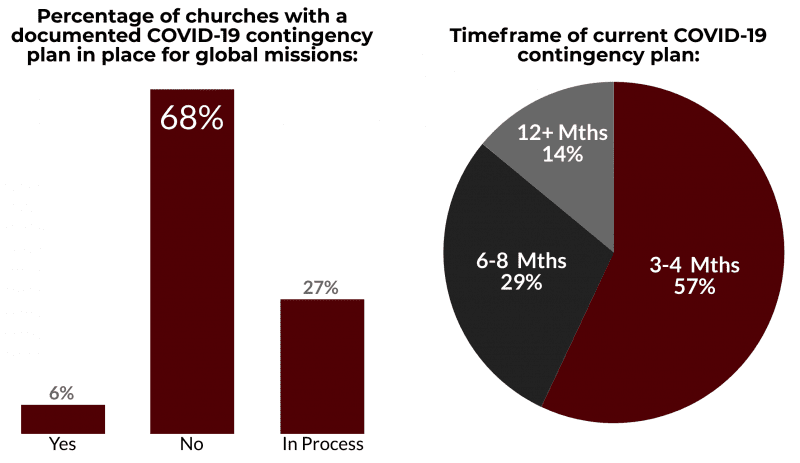
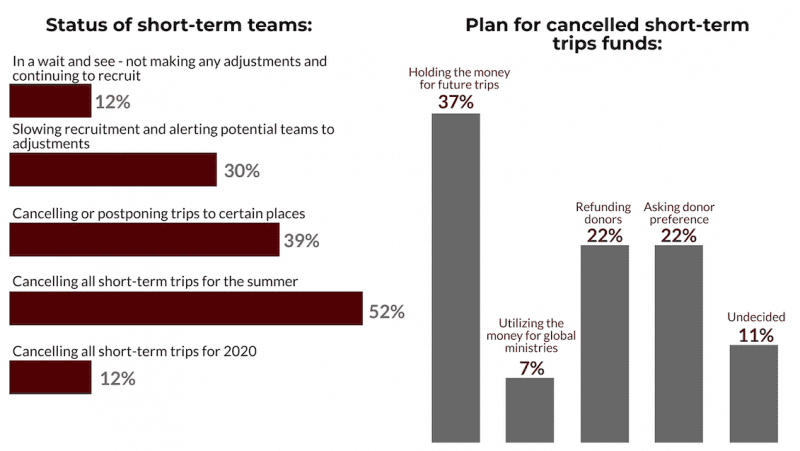
Churches also face the reality of what to do with money already collected by donors for trips. Thirty-seven percent will retain those donations for future trips, while twenty-two percent have begun refunding donors. Another twenty-two percent are asking donors for their preference for how the funds should be used or if they would like them refunded. For trips that are taking place later in the summer or fall you may want to consider taking pledges for support that you could collect the actual donations closer to the trip.
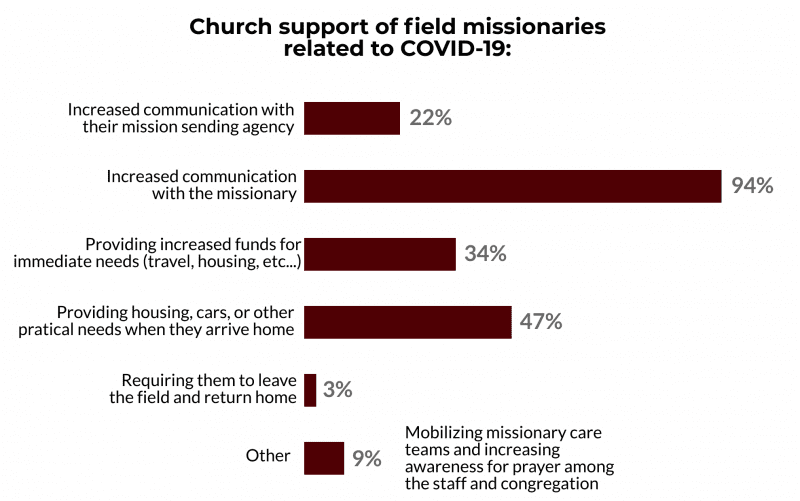
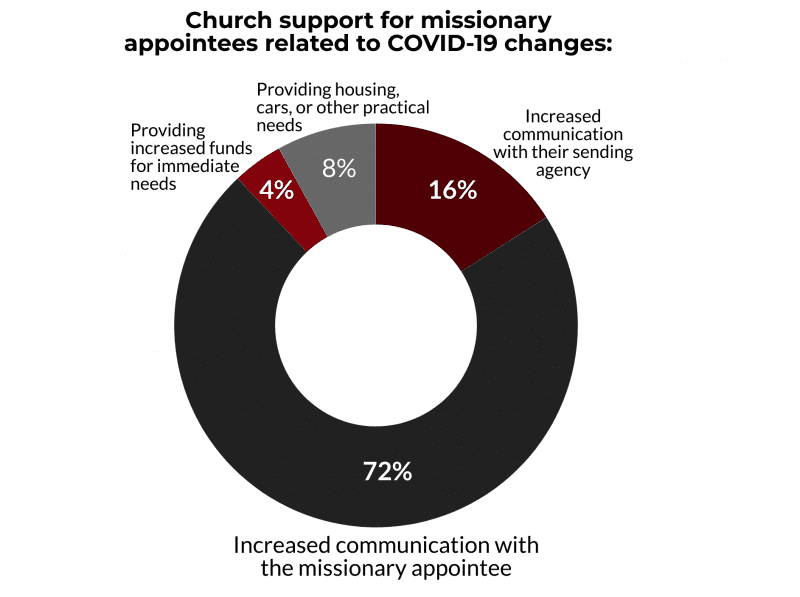
Missionaries may not only face travel restrictions from the United States government but countries around the globe with open borders are now closing them indefinitely to stop the spread of COVID-19. This new reality will most likely affect visas, language learning, and other issues for transition to the field. Some missionaries may be more willing to take risks than others, which needs to be handled individually by coordinating all perspectives.
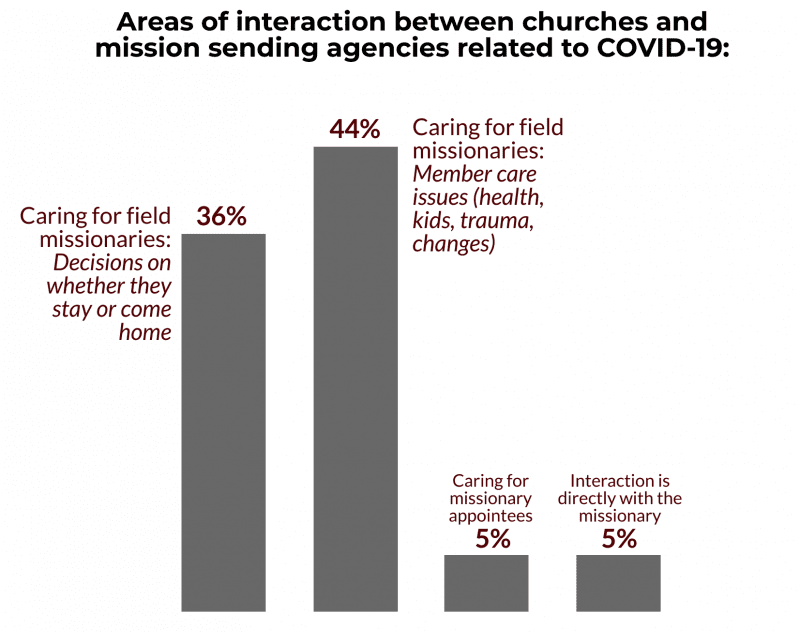
Most likely, member care issues will increase the longer we don’t have globally available treatments or vaccinations for COVID-19. This will affect quarantines, travel restrictions, parents separated from children, or even exacerbating issues that missionaries may have already been struggling through. Most missionaries will need a team of people providing care of different degrees to help them navigate the days ahead.
